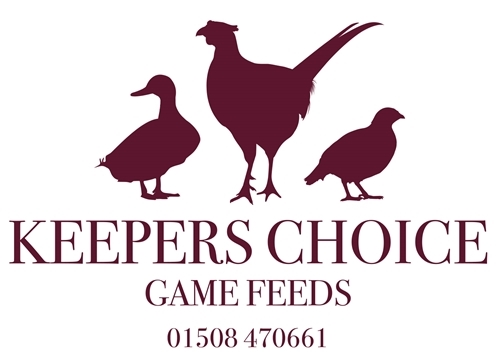
Criticism that UK shoots are too reliant on foreign – mostly French – young stock is nothing new, but Coronavirus has reinforced the belief that greater self-sufficiency is overdue. And it’s not just driven by patriotism, but the logic that sourcing from within gives greater control.
With tens of millions (the actual figure is subject to dispute) of game poults laid down in the UK in a normal year, critics will dismiss the amount the UK can contribute as tiny – not least because it manages to provide no more than a twentieth of current demand.
One major player in the game world, whilst recognising the improbability of full independence from foreign supply, ventures that in three years the UK could produce at least half the stock requirement. The proviso being that the accepted norms for bird numbers laid down will have significantly reduced by that time – a move he thinks likely to improve rather than diminish the quality of shoot days.
Richard Leach, commercial manager with game feed specialist Keepers Choice, believes a potential upside of the C-19 calamity is a heightened appreciation of driven game: “Many of those fortunate to be shooting this season – which is set to be more than many thought – will almost certainly achieve their sport from shooting fewer birds,” he says.
“This will mainly be because most shoots have put down fewer birds – giving rise to the pleasing prospect that shoot days will be assessed more on the quality of the birds shot rather than the bag numbers. And a knock-on benefit will be fewer loses – not just because fewer birds have been put down, but because lower stocking rates often decrease overall mortality rate.”
But even if the estimated 25% - 35% fewer birds put down this year were to be the post pandemic norm, the UK on its current form would contribute only a small minority of the birds required. But those already established in the game sector think we should be more ambitious.
Home Counties’ game farmer Steve King has 10,000 breeding hens and hatches 1m pheasants, of which 25% to 30% are imported. He is of the view that more home-produced stock is required, and game farmers need to do the whole job – not just rear the birds from day-old, but source from a health tested and closed British flock. He’s not a great fan of caught-up hens – illegal in close season in any event – which he feels is hit-and-miss and gives rise to discrepancies. Instead eggs should be obtained from accredited sources with a full paper trail – and you would see a major reduction in disease and downturn in mortality he contends.
This view is echoed by another Home Counties’ game farmer who wishes to remain anonymous. Heading a long-established family-run game farm, his experience of sourcing pheasants from Somerset, and partridge from Hampshire (100,000 chicks in total) has made him a strong advocate of UK-based breeding – preferably local to the shoot. He believes less travel means less stress, greater transparency and less mortality. Putting down fewer birds he contends will simply increase demand; but he harbours concerns that shooting may become out-priced for the working man. This he feels is an irony given that the working man has been pivotal to keeping shooting going, particularly through difficult times as exemplified so well this year.
On the other hand, it can be said that localising game breeding favours the small shoot, making the logistics of sourcing young stock easier while reducing the risk of stress and subsequent disease often triggered by long journey times. Whereas fewer birds per say may increase the costs for the shooting elite, it may also make it more accessible for the small self-supporting syndicate.
In short, the overwhelming benefit of home breeding must be the assurance it gives. Whether we like it or not, our sector is having to professionalise its affairs. With far more game birds entering the food chain – a moral as well as a practical step – supermarkets and other serious buyers will deem what constitutes an acceptable product. Audit schemes such as that administered by the British Game Association (BGA) with its mycoplasma blood tests and traceability programmes will have a critical role in giving shooting the credibility it must have among an audience well outside those who participate in the sport.
Breeding stock from our own ranks is surely a logical step in this process and well within the means of the UK game sector. If by doing so we add value, not just to the meat we place in the food chain but to the actual birds we shoot, so much the better.